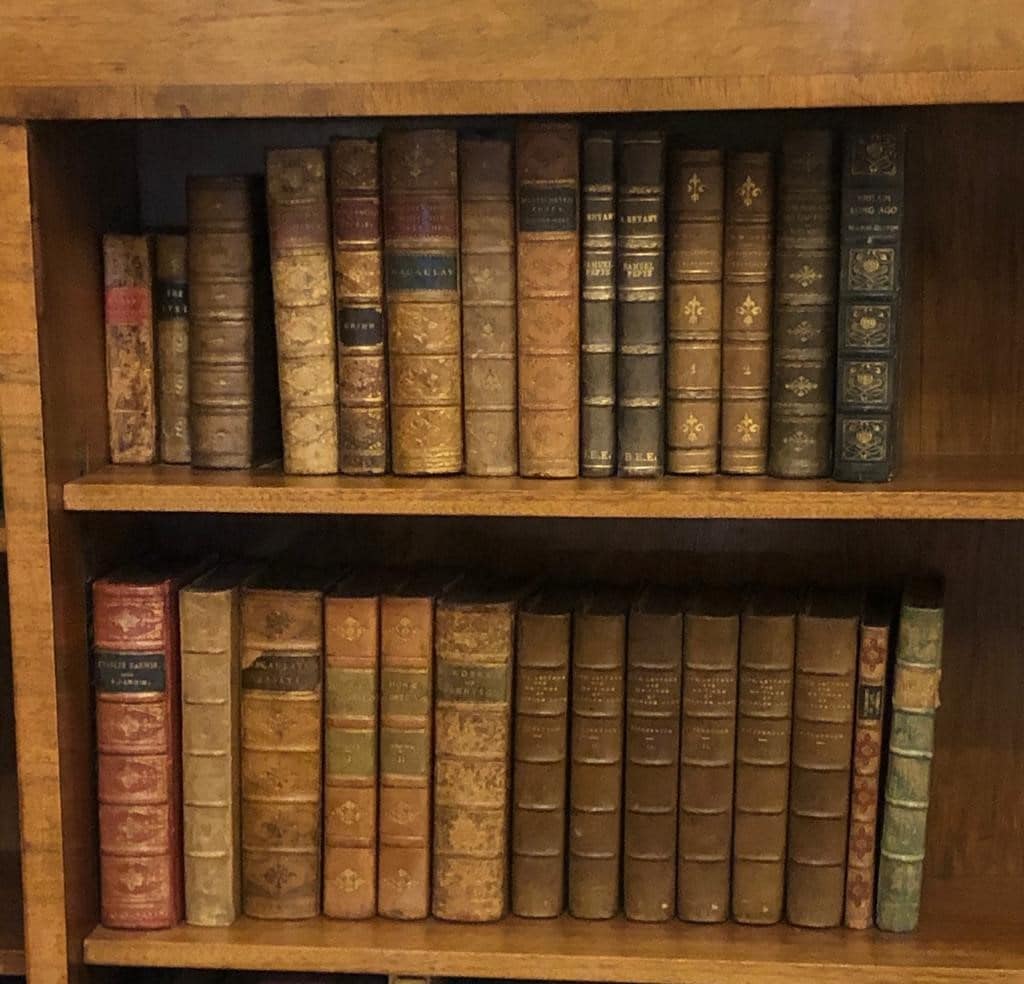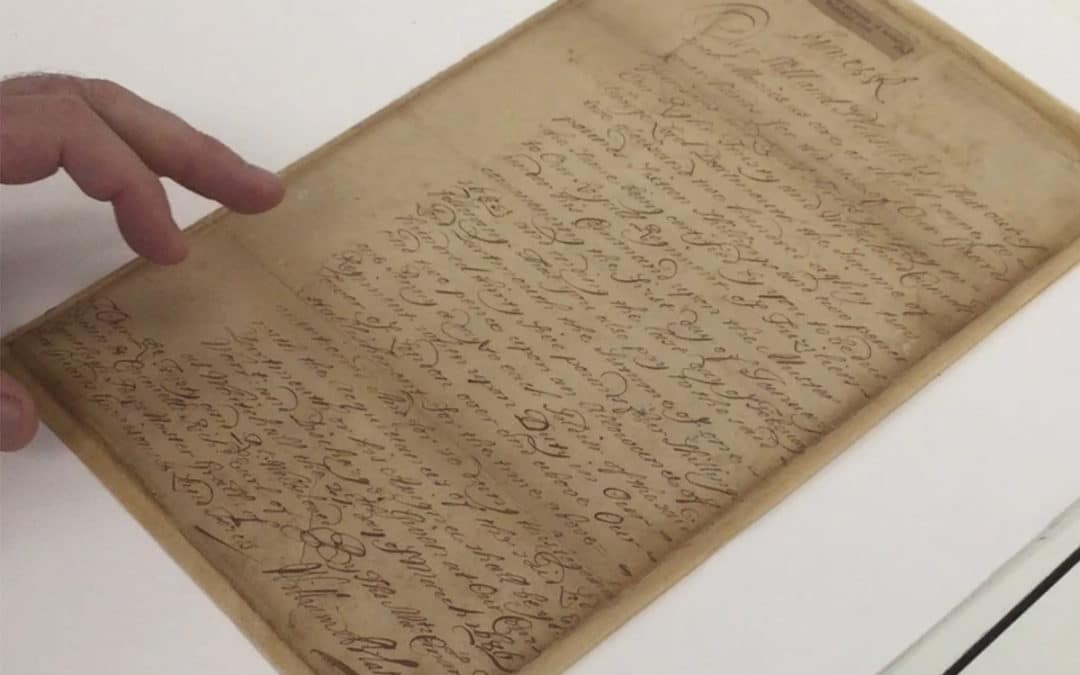Our Senior Paper Conservator David Jones sits down with specialist fine art insurers Smith Greenfield, to share his Top 5 Tips for caring for books…
1. Books are Organic
Books are made of organic materials. The text block (the inside pages of a book) consists of paper (cellulose fibres) or sometimes parchment (animal skin). The text block is protected by a cover, which may be made of vellum, leathers or fabrics stretched over boards made of wood or card. This cover is adhered in place with either animal glues or starch pastes.
Organic materials are in a constant state of gradual decline, and unfortunately books are no exception. In addition to this, the inks used in writing or printing can often be acidic and therefore damaging to these materials.
As owners or custodians of these precious objects, it is important that we protect books and manuscripts as much as possible from their inevitable decay – not simply for financial reasons, but also for the sake of preserving cultural heritage.

2. Know the Risks
Threats to books are numerous. Of course, we all know of the major disasters such as fire and flooding that we have heard about recently in the news both locally and abroad such as floods in Yorkshire, fires in Australia, etc.
However, small changes to the environment in which books are housed can be just as dangerous. Fluctuations in temperature and humidity can promote mould growth or premature drying and embrittlement of our collections.
We can combat these dangers by storing our bound investments away from radiators, fireplaces, exterior walls, underground rooms, indoor pools or saunas. Know your damp corners and areas of poor air circulation. Never keep items on the floor. Know your building and avoid putting your collection in rooms located under potential flood sources like kitchens or bathrooms.
3. Be a bookworm, don’t feed a bookworm!
Bound volumes are delicious to many pests and even the cleanest and most palatial home can have issues with unwanted visitors.
The paper, adhesives, etc. are ideal food for larger animals like rats and mice and can also be attacked by insects and mould.
Be a bookworm, don’t feed a bookworm! Also remember that dogs do not confine themselves to just eating children’s homework – they are just as likely to chew up your rare 14th century limp vellum binding or First Edition Dickens. On which note – be sure your collection is always kept out of reach of children until they have been taught how to handle bound volumes with care.
4. Be Proactive!
Prevention is better than cure. To this end, having a Collections Care specialist assess your home for the best collection location or to recommend ways to optimise the environment you are or propose to keep your collection in, can be an excellent investment that may save considerable money in the long run.
Being proactive is the best of all. One inexpensive and effective measure I recommend is to buy conservation-grade boxes and store your most precious objects in a box when you are not using them. Your children and their children will be glad you did!
5. Finally, remember that accidents sometimes just happen
In the event of damage, remember that rebinding a rare book will significantly decrease its value – it is far preferable to have the damage treated by a specialist conservator.
To find out more about our book conservation services, please contact info@plowden-smith.com, or telephone +44 (0)20 8874 4005
To find out about the range of paper conservation services we offer, click here

